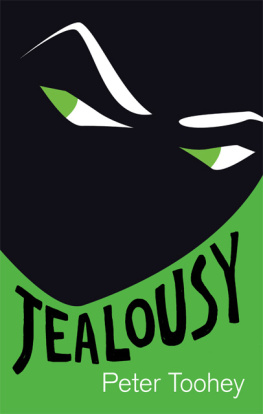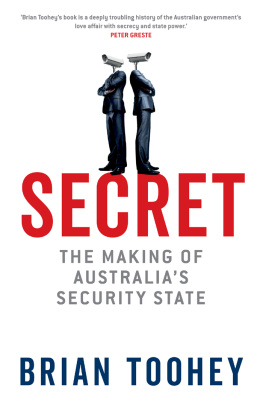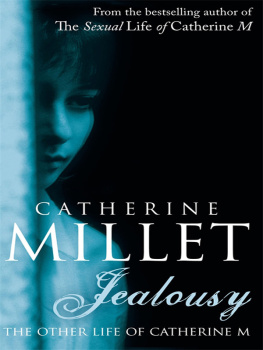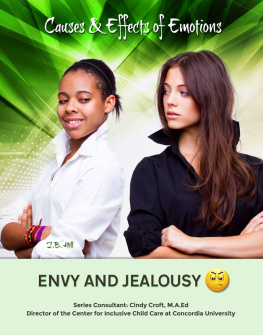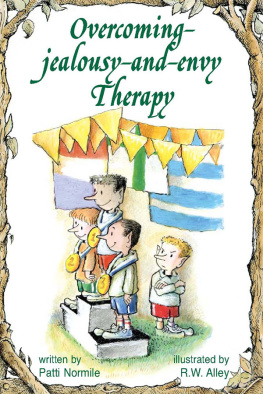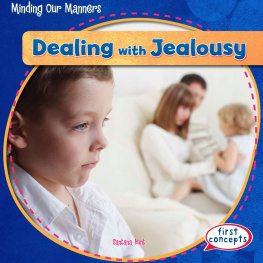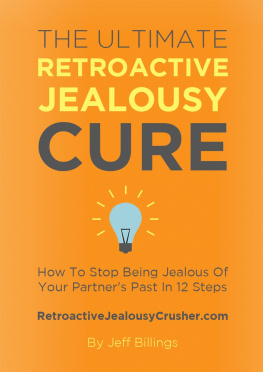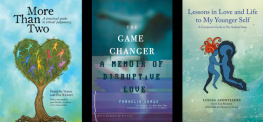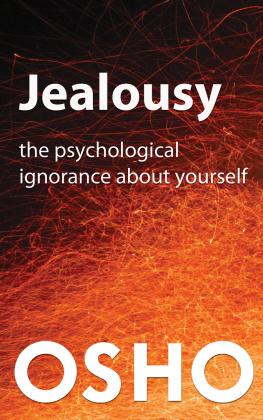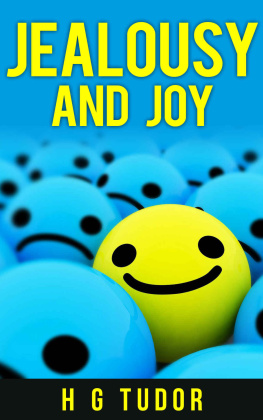

Copyright 2014 Peter Toohey
All rights reserved. This book may not be reproduced in whole or in part, in any form (beyond that copying permitted by Sections 107 and 108 of the U.S. Copyright Law and except by reviewers for the public press) without written permission from the publishers.
For information about this and other Yale University Press publications, please contact:
U.S. Office:
Europe Office:
Typeset in Arno Pro by IDSUK (DataConnection) Ltd
Printed in Great Britain by TJ International Ltd, Padstow, Cornwall
Library of Congress Cataloging-in-Publication Data
Toohey, Peter, 1951
Jealousy / Peter Toohey.
pages cm
Includes bibliographical references and index.
ISBN 978-0-300-18968-1 (alk. paper)
1. Jealousy. 2. Jealousy in literature. I. Title.
BF575.J4T66 2014
152.48dc23
2014028282
A catalogue record for this book is available from the British Library.
10 9 8 7 6 5 4 3 2 1
For
Elaine Fantham
Contents
Preface
I F THERE WAS some woman in London that Maxim loved, laments the narrator of Daphne du Mauriers Rebecca, I could fight her. We would stand on common ground. I should not be afraid. Anger and jealousy were things that could be conquered. One day the woman would grow old or tired or different, and Maxim would not love her any more. But Rebecca would never grow old. Rebecca would always be the same. And her I could not fight. She was too strong for me.
The new Mrs de Winter is deeply jealous of her husband Maxims late wife. Much of the novel is absorbed with her growing preoccupation with the charismatic, sophisticated and beautiful Rebecca. She struggles against her rivals shade, which, she fears, haunts the mind of Maxim. She struggles as well with the Cornish estate of Manderley and its staff. From the seething Mrs Danvers, the housekeeper, she learns that the real Mrs de Winter used cruelly and deliberately to provoke Maxims jealousy, bringing men back for weekends: They made love to her of course; who would not? She laughed, she would come back and tell me what they had said, and what theyd done. She did not mind, it was like a game to her. Like a game. Who wouldnt be jealous? They were all jealous, all mad for her everyone who knew her, everyone who came to Manderley.
How can you possibly deal with a rival whom you cannot confront or combat? Maxim was jealous while she lived, and now hes jealous when shes dead. Maxim also acted on that jealousy; after Rebecca threatens that her illegitimate child will inherit Manderley, he shoots her in the boathouse. The new Mrs de Winter is only freed from her jealousy when she learns the truth about Rebecca, and when the house, so infused with Rebeccas presence that it seems almost to be alive, burns to the ground.
Published nearly eighty years ago, Rebecca is probably the most-read book about jealousy in English. It has never gone out of print, and has been adapted for stage and screen numerous times. That says something about the enduring fascination of the emotion of jealousy. (It also says something about the enduring fascination exerted by popular psychological thrillers and Gothic romances.) Rebecca, which its author called a study in jealousy, is also a novel crafted from jealousy: du Mauriers husband, Major Tommy Boy Browning, had been engaged to a glamorous woman called Jan Ricardo, who threw herself under a train during the Second World War. Daphne du Maurier harboured a suspicion that Tommy had always remained attached to her. The novels love triangle, with a ghostly but still powerful presence at one of its corners, had its roots in real life. After all, the sexual jealousy that the novel circles around is typical. Who would not recognize the suspicion, the compulsive comparisons, the oesophageal knot, the minatory sensations? Its a normal, common emotion, but one that has a much larger and more interesting life than is usually allowed.
This book will look at the many parts that jealousy plays in our lives. It doesnt deal only with sexual jealousy, though that is what most people think of when they bring the emotion to mind. It also examines the different kinds of jealousy experienced by infants, animals, families, artists, academics and work colleagues. It tries as well to iron out not only the differences but also the relations between jealousy and envy. Ill look at the biological and evolutionary basis of jealousy, and its relation to the understanding of how socialization takes place for human beings. Although extravagant and violent jealous reactions make good press and the media abounds in sad, sordid and savage tales of jealous lovers acting atrociously jealousys daily life is much quieter and its surprisingly beneficial. Ill show how such an apparently awful emotion is as helpful as its harmful and how it has a valuable role to play in private life by protecting and strengthening relationships. More widely, Ill show that jealousy also has a powerful part to play in the social context, as a potent means for the assertion of individual rights and the encouragement of cooperation and equitable treatment. And beyond that, Ill also try to map out jealousys cultural life in art and literature, as well as some of the advances made in understanding the emotion in psychology, neurology, anthropology and social science. Some of the most informative instances of jealousy, it turns out, have been committed to canvas and paper jealousy can be a great spur to creativity. Ill also look at jealousys historical lifespan. How has it been experienced and thought about through time and in different cultures around the world?
Which brings me to the here and now. Are people more jealous today than ever before? The media in the West would certainly have you believe so. With the modern worlds enthusiasm for the pursuit of material wealth and consumer goods the sense of always wanting whats new, whats better, whats more the possibilities for rivalry and competitiveness abound. And some are loudly proclaiming the twenty-first century to be the Age of Entitlement, a period in which increasing wealth breeds a sense of narcissism and of the right to exploit and to cheat. If you think you can escape it, think again: as Jean Twenge and Keith Campbell argue in The Narcissism Epidemic: Living in the Age of Entitlement, Not only are there more narcissists than ever, but the non-narcissist people are seduced by the increasing emphasis on material wealth [S]tandards have shifted, sucking otherwise humble people into the vortex of granite counter tops and plastic surgery. Are we all part of this entitled, narcissistic world? Is the modern sense of possessiveness and privilege running rampant, and playing havoc with our emotional lives? Is this the sort of fertile soil within which the seeds of jealousy are best sown?
What is jealousy?
W HAT IS JEALOUSY ? The Swedish playwright August Strindbergs Night of Jealousy (1893) offers one kind of answer. On first glance the painting is an impenetrable blur of darks, greys and whites. Its all raging seas, slashing rain and thunderclouds an analogy, you could say, for someone in the midst of a jealous rage.
Many who have been badly jealous might instantly believe that, yes, thats how it really feels. Strindberg has got the turbulence, anxiety and pain down cold. But couldnt this abstract evocation of jealousy do duty for just about any strong feeling? Grief, anger, depression or desperation could all be easily ascribed to it. What the painting conveys to me, then, is the difficulty involved in trying to represent an emotion like jealousy. If it werent for the title of the painting, and Strindbergs own note on the back of it to his soon-to-be-wife To Miss Frida Uhl from the artist (the Symbolist August Strindberg). The painting depicts the sea (bottom right), Clouds (top), a Juniper bush (top left) and symbolizes: a Night of Jealousy I doubt anyone would have a clue as to what Strindberg is getting at.
Next page
